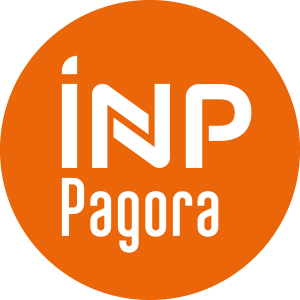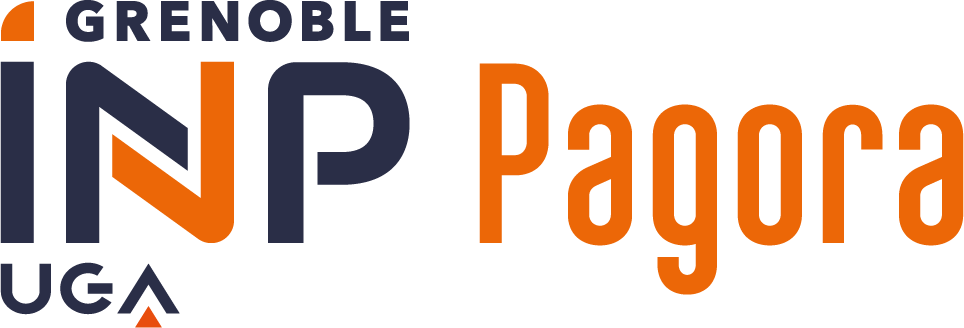Number of hours
- Lectures 46.5
- Projects -
- Tutorials -
- Internship -
- Laboratory works -
ECTS
ECTS 55.0
Goal(s)
Learning outcomes :
- To know the notion of metamerism
- To know the principles and methods of reproducing a colour
- To know the formulas for colour differences.
- To characterize color: describe the color of an object from its diffuse reflection spectrum and the illuminant
- To measure a color in different colorimetric systems
- To calculate a color difference between a control and its reproduction
- To reproduce an ink to the model using formulation software
- To know the main characteristics of printing inks and varnishes, according to the different printing processes: typical compositions, drying processes
- To identify the causes of some printing problems related to inks
- To use special inks, such as applications to new technologies (e. g. microelectronics).
- To know the general principles of photophysics and photochemistry
- To provide examples of applications of photophysics and photochemistry in the graphic and processing industries.
- To describe some classic applications of photochemistry (example: photopolymerization) and photophysics (example: photoluminescence)
Anne BLAYO
Content(s)
Colour physics part
Introduction
1. Eye and colour vision
2. Light and its interactions with materials
3. Fundamentals of visual colorimetry : CIE 1931, XYZ, definition of metamerism
4. Colorimetry of differences : CIE 1976, L*a*b* system, definition and formulae of color differences
5. Colour matching : models of color matching (Kubelka-Munk, Neugebauer, etc.)
6. Evaluation of the quality of color matching, conditions of spectrophotometry measurements
7. Introduction to colour appearance models (CIECAM)
Ink part
1.Introduction : general characteristics of printing inks
2.Pigments soluble dyes
3.Offset inks
4.Flexo and gravure inks
5.Ink jet inks and Toners
6.Screen-printing inks
7.UV-curable inks
8.Rheological and physico-chemical properties of printing inks
9. Introduction to functional inks
Photochemistry and physics part
1- Introduction
- Definitions : photo physics vs. photochemistry; units and magnitudes
- Interactions between light and molecules
2- Laws of photochemistry
-1st and 2nd laws of photochemistry
-Excitation of an organic molecule
3- Chromophores
4- Fluorescence / Phosphorescence
5- Study of primary photochemical processes
-General presentation
-Case study - Applications.
Optical properties of papers, basics in geometry
Rheology, Physico-chemistry, Printing processes, Polymer chemistry
Basics in organic chemistry
Accessibility for people with disabilities : please contact us for further information
- Specific credits: this course brings 3.0 ECTS to students in Print sciences processes & materials
Only one written exam for the 3 courses : colorimetry, inks and photo physics-photochemistry
rattrapable en 2e session
1 note TP (no catch-up possibility)
La note d'examen écrit est une évaluation commune au trois cours : colorimétrie, encre et photophysique-photochimie.
Note CM coeff de 55 - Note TP coeff 10
Note finale (55*CM +10*TP)/65
The exam may be taken in french or in english
The course exists in the following branches:
- Curriculum - Pagora Engineer - Student - Semester 7 (this course may be followed in french or in english)
- Curriculum - Pagora Engineer - Apprentice - Semester 7 (this course may be followed in french or in english)
- Curriculum - - Semester 7 (this course may be followed in french or in english)
Course ID : 4FMT1083
Course language(s): 

You can find this course among all other courses.
Environmental security
La sécurité est prise en compte dans cet enseignement surtout pendant les TP : utilisation d'encres et de solvants de nettoyage. Une sensibilisation est faite sur les bonnes pratiques en laboratoire encres.
- Billmeyer F.W. and Saltzman M., « Principles of color technology », 3rd ed., John Wiley, 2000.
- Elias M. et Lafait J., « La couleur – Lumière, vision et matériaux», ed. Belin, 2006.
- Fairchild M.D., « Color Appearance Models », ed.Addison-Wesley, 1998.
- Kowaliski P., Viénot F. et Sève R., « Vision et mesure de la couleur », ed. Masson, 1990.
- McDonald R., « Color physics for industry », ed. by Society of Dyers and Colourists, 1987.
- Nassau K., « The Physics and Chemistry of color : the fifteen causes of color », 2nd ed., John Wiley, 2001.
- Sève R., « Physique de la Couleur : de l’apparence colorée à la technique colorimétrique », ed. Masson, 1996.
- Sharma G. et al., « Digital Color Imaging Handbook », ed. by G. Sharma, CRC Press, 2003.



